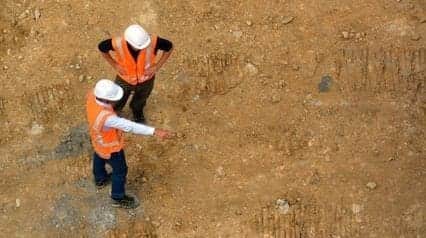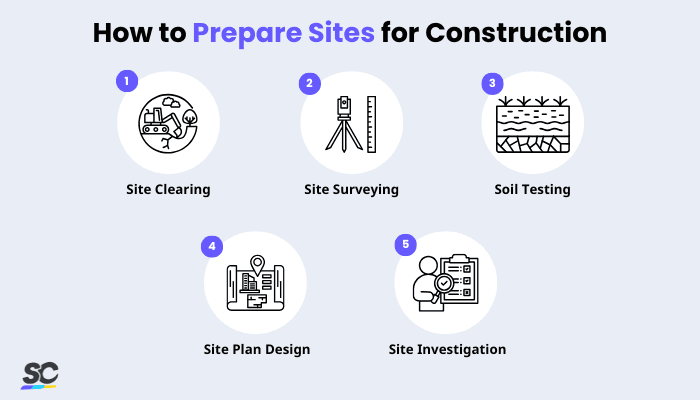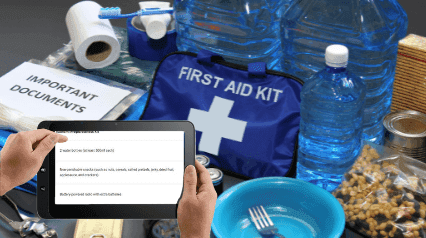Site Preparation: What You Need to Know
Learn the process of site preparation, its benefits, and its applications in construction.

Published 3 Oct 2025
Article by
5 min read
What is Site Preparation?
Site preparation is the process of preparing the site for future construction work. This involves clearing the construction site, grading the land, and compacting the soil. It’s a critical step in the construction process as it lays the groundwork for a successful and safe construction project. Without proper site preparation, the construction work will be of poor quality and will not meet the required standards.
Importance of Site Preparation
It’s important to consider the site preparation that will be required when embarking on any construction project. This is especially true for larger projects, such as building a new home or office, where it typically involves clearing the site of any debris, grading the land, and leveling the ground. Preparing a site also helps with:
Ensuring that the construction site is safe and ready for the work to begin.
Minimizing the impact of the construction work on the surrounding environment.
Expediting the construction process by making it easier to access the construction site and by making it easier to move materials around the site.
Whether you are planning a small or large construction project, it’s essential to undergo the process of site preparation.
Essential Factors in Carrying Out Site Preparations
There are several considerations when preparing a construction site, since each site has its own unique requirements. Here are some of the key essential factors to consider:
The Nature of the Project: The type of construction project plays an important role in determining the level of site preparation required. For example, a residential development generally involves less extensive groundwork, while commercial and infrastructure projects typically demand significant site preparation due to their larger scale and complexity.
The Size of the Project: As the size of the project increases, so does the complexity, time, and resource investment needed to ensure proper site readiness. Smaller projects generally require less groundwork, fewer resources, and shorter prep time, while large-scale developments demand more planning, heavier equipment, and additional labor to accommodate the broader site requirements.
The Location of the Construction Site: Location is also a crucial factor in shaping the site preparation process, as each factor presents its unique challenges and requirements, such as the site’s setting, regional climate, and accessibility to infrastructure and resources.
Streamline Your Construction Operations
Unlock the power of data-driven insights, standardized processes, and effective communication to improve efficiency and productivity across all jobsites.
How to Prepare Sites for Construction
Below is the step-by-step process to help you with your site preparation:
Step 1: Site Clearing
The first step in any site preparation is site clearing. This process involves removing any trees, vegetation, debris, or other obstructions from the construction site. This is usually done with heavy machinery such as bulldozers and excavators.
Step 2: Site Surveying
In this step, a team will survey the land to determine the best way to lay out the construction site. Site surveying is an essential step as it is required for zoning and permitting processes. This includes determining the boundaries of the site, where to place buildings and other structures, and how to best connect utilities.
Step 3: Soil Testing
Soil testing is an essential process wherein the soil type is determined. This information is important as it will help determine the type of foundation that needs to be used for the construction project. This process is typically done by acquiring a sample from a borehole or pit, after which the sample is sent to a laboratory for analysis.
Step 4: Site Plan Design
After soil testing and installing all drainage and septic tanks, site planning is the next step in the site preparation process. Pipes, plumbing systems, and other fixtures must be carefully designed to prevent disorganization during construction. Understanding what works underground is essential because it can be altered by conditions like rock formations, making an efficient site plan crucial when carrying out construction work.
Step 5: Site Investigation
Finally, the last step is site investigation, where all required data about the proposed site’s rock, soil, and groundwater conditions are collected. In this step, the inspector will be able to determine if the site is good for construction. Once all the necessary site inspection information is obtained, inspectors can estimate the cost and identify the methods to be used for the building project.

Tips to Ensure a Safe and Proper Site Preparation
To ensure effective site preparation during the construction process, here are some tips to help you:
Enhance On-Site Safety Protocols: It’s crucial to review and update safety guidelines before starting a construction project. Doing so will help protect workers, prevent accidents, and comply with site safety regulations.
Implement a Construction Plan: A construction plan will help organize the construction site and ensure that all work is completed efficiently.
Conduct a Soil Test: A soil test will help determine the type of soil present on the construction site. This information can be used to determine the best way to prepare the site for construction.
Choose the Right Equipment: The type of equipment used for site preparation can vary depending on the size and scope of the project. It’s important to select the right equipment for the job to ensure that the work is completed safely and efficiently.
Get Your Crew Ready: Your crew is the backbone of everything to get it completed on the construction site. Make sure that everyone is properly trained and aware of the construction process.
Monitor the Weather: The weather can have a major impact on the site preparation process. Monitor the forecast and adjust the construction schedule accordingly.
Effectively Prepare Construction Sites with SafetyCulture
Why use SafetyCulture?
SafetyCulture is a mobile-first operations platform adopted across industries such as manufacturing, mining, construction, retail, and hospitality. It’s designed to equip leaders and working teams with the knowledge and tools to do their best work—to the safest and highest standard.
Streamline processes, eliminate bottlenecks, enhance resource utilization, and build an agile and scalable infrastructure with SafetyCulture. Strive for operational excellence to boost competitive advantage, foster sustainable growth, and deliver long-term value.
Save time and reduce costs
Stay on top of risks and incidents
Boost productivity and efficiency
Enhance communication and collaboration
Discover improvement opportunities
Make data-driven business decisions
FAQs About Site Preparation
Article by
SafetyCulture Content Team
SafetyCulture Content Contributor, SafetyCulture
View author profileRelated articles
Environmental Safety
Safety

A Comprehensive Guide to Stormwater Pollution Prevention Best Management Practices (SWPPP BMP)
Learn about the types of best management practices for SWPP and the steps to effectively implement them in prevention plans.
Risk Assessment
Safety

The Ultimate Guide to Emergency Preparedness and Response
Learn how you can develop an effective emergency plan and stay one step ahead of natural disasters or other catastrophes.
Safety
Safety Management

Disaster Preparedness Plan
Learn more about the disaster preparedness plan, its importance, features, and example. Find out how a digital tool can help prepare against disasters.